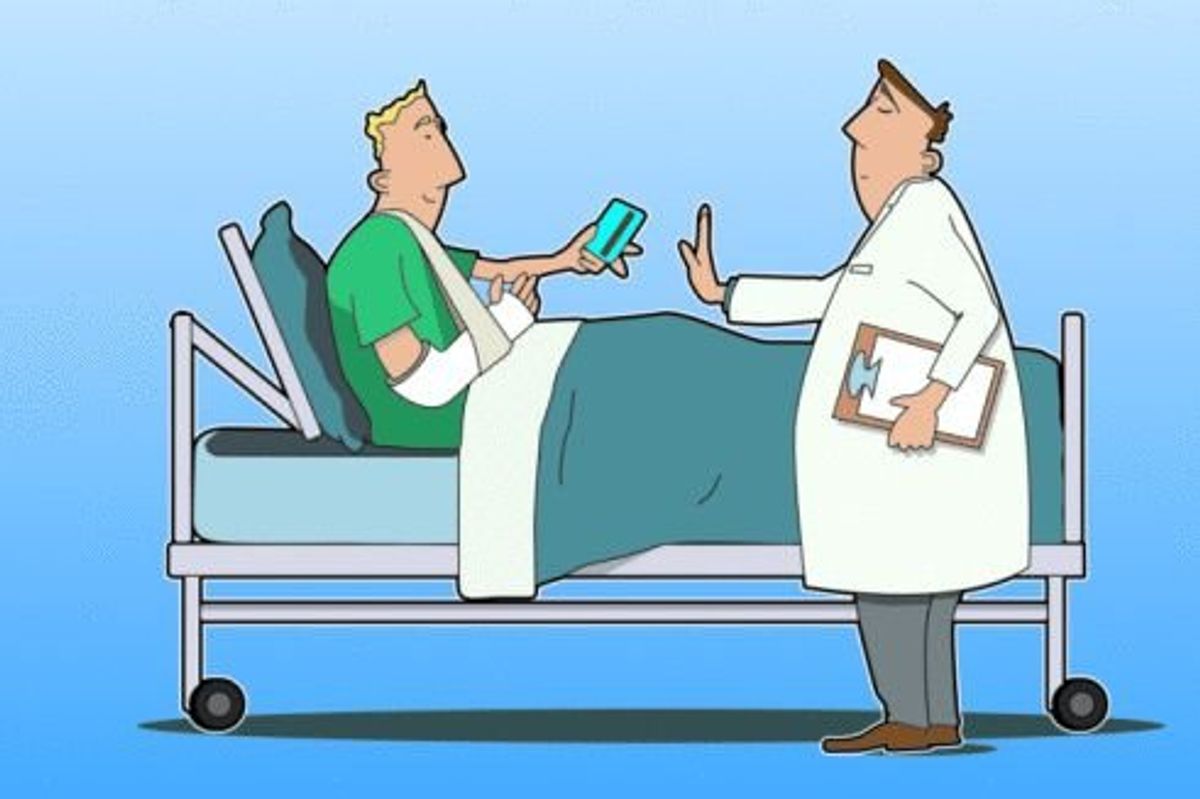Last week's post on when to go to the emergency room elicited some very helpful comments and suggestions. Among them:
"I always ask myself on Fridays whether any symptoms I'm having need looking into, so I can go to the clinic rather than getting stuck with the emergency room over the weekend."
"I wish I'd thought to get some pain killer before I left my apartment, because it was several hours before I was admitted and they won't give you pain killer until you're admitted."
"Perhaps it's worth it to have a small bag near the door with the necessary things (and a list of other things you can't store there all the time), just in case"
"You need an advocate. So don't go there alone, if you can possibly help it."
No one wants to have to make that 911 call, but let's face it – it happens. One in three Americans visit emergency departments each year – and that totals more than 115 million visits. (One of my readers said, "I think ER doctors are American medicine at its very best and I am so grateful for them" She's right: it's a tough job. Emergency medicine is a medical specialty, spanning multiple disciplines and specialties.)
There are some ways to insure that the experience goes as smoothly as possible. Here are some tips to getting quality medical care and avoiding some pitfalls:
ICE: No, don't ask for an icepack (unless of course you need it) – put it into your cell phone. It stands for "In Case of Emergency" and medical personnel know to look for it. For example: "ICE1-husband" and "ICE2-mom" gives them emergency contacts if you arrive unconscious or are unable to answer questions.
DON'T EAT OR DRINK: After you've checked in, you'll be referred to a triage nurse who is trained to access your condition and determine how serious it is. (This way, patients with life-threatening conditions can be seen first). Wait until you've seen a nurse before you eat or drink anything. Why? Eating or drinking may interfere with some tests and/or your ability to have surgery. Case in point: When my husband dislocated his hip, we had to wait an excruciatingly long six hours before they could sedate him to try to re-locate it, since he had eaten a small snack at the house right before it happened. (Waiting six hours in a hospital ER is not fun, unless you are like me and like to look around and make up complex stories about why each person is there. But even that gets old.)
SPEAK UP: Few people realize that they can request a specialist or more senior ER physician. If you feel uncomfortable with the level of experience of the ER doctor, asking for a second opinion from a specialist is a smart move. Who knows how new the doctor is – or if he or she has been up for 36 hours straight. You might even want to call your family doctor from the waiting room or en route to the hospital; he or she may be able to meet you there or at least make a phone call to expedite or coordinate treatment. (Speaking up is getting easier for me than it used to be – I don't know about you, but don’t all the doctors look like they're just out of high school?)
BRING A FRIEND: It's helpful to have someone along with you not only to comfort you but to act as your advocate. Think about it – you're frightened, nervous and probably weak or in pain – not the best circumstances to deal with lots of details, (or any at all for that matter). They can also take notes and record any necessary information – another thing you most likely cannot do on your own.
AVOID UNNECESSARY TESTS AND TREATMENTS: You do not have to agree to any test. You can, and should, ask what the risks are, what it will show, and how the results will change your course of treatment. Some tests are truly necessary, yet some are just routine or used as a precaution. Again, you might want to talk to your primary care physician, - if the tests can wait – and get their take on the situation.
And finally: This matters> The American College of Emergency Physicians says that sometimes a patient will come in with mild symptoms, and while they are waiting, their medical condition worsens. It's very important for emergency patients in waiting rooms to notify the triage nurse if they are in pain or if they start to feel worse. If they are still concerned, they should ask to speak to an emergency physician or a patient advocate. People should not leave the emergency department without being seen.







